Book Bonanza
[by Mark Safranski, a.k.a. “zen“]
My usual yuletide haul of books received and purchased….
The Last of the President’s Men by Bob Woodward
Being Nixon: A Man Divided by Evan Thomas
Iron Curtain: The Crushing of Eastern Europe 1944-1956 by Anne Applebaum
Avoiding Armageddon: From the Great War to the Fall of France 1918-1940 by Jeremy Black
Roots of Strategy Book 3
Rule of the Clan by Mark Weiner
Twilight of the Elites: America after Meritocracy by Christopher Hayes
Democracy in Retreat by Joshua Kurlantzick
The Righteous Mind: Why Good People are Divided by Politics and Religion by Jonathan Haidt
The Middle-East: A Brief History of the Last 2000 Years by Bernard Lewis
Patton: A Genius for War by Carlo D’Este
Beetle: The Life of General Walter Bedell Smith by D.K.R. Crosswell
The Libertarian Mind by David Boaz
A Short History of Nearly Everything by Bill Bryson
Starship Troopers by Robert Heinlein
A Dance of Dragons by George R.R. Martin
If anyone has read these titles and wishes to fire away about them, or their authors in the comment section, feel free. Not sure how many will be featured in future reviews.
The Nixon books were first brought to my attention on, if I recall, the Facebook page of historian Maarja Krusten of NixonNARA, the expert’s expert in matters relating to the presidential records, documents, court cases and tapes of Richard Nixon. When Maarja opines on Nixon topics, I listen with care. I look forward to reading these, even though my opinion of Bob Woodward is that he often has to be treated cautiously, Alexander Butterfield’s cooperation and contribution was obviously central to the book (not unlike the far longer cooperation between George Kennan and his biographer, historian John Lewis Gaddis). Evan Thomas’ theme just offhand strongly reminds me of Richard Reeves’ excellent President Nixon: Alone in the White House; I’m curious if this will be a rehashing or if Thomas can bring something new to the table about America’s 37th President.
I am also excited about Rule of the Clan, which should be of interest to anyone thinking about insurgency, irregular warfare, unconventional warfare and terrorism intersecting with tribal or quasi-tribal societies. My friends Michael Lotus and James Bennett who wrote the excellent America 3.0 and drew on the family structure ideas of British anthropologist Alan Macfarlane and French scholar Emanuel Todd, would also be interested.
The fiction was picked up for a simpler reason. I need a change of pace and never read the last, most recent book in the Game of Thrones series.
What are you reading these days?

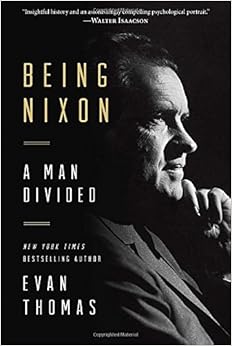



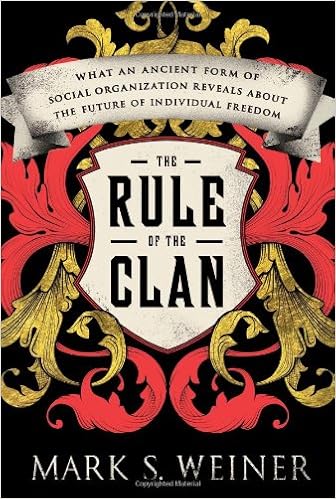
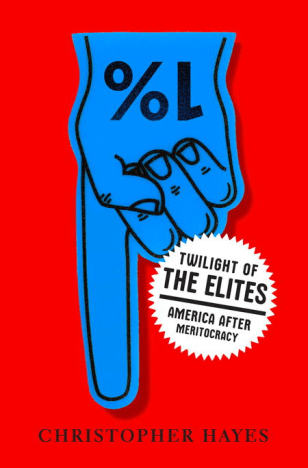






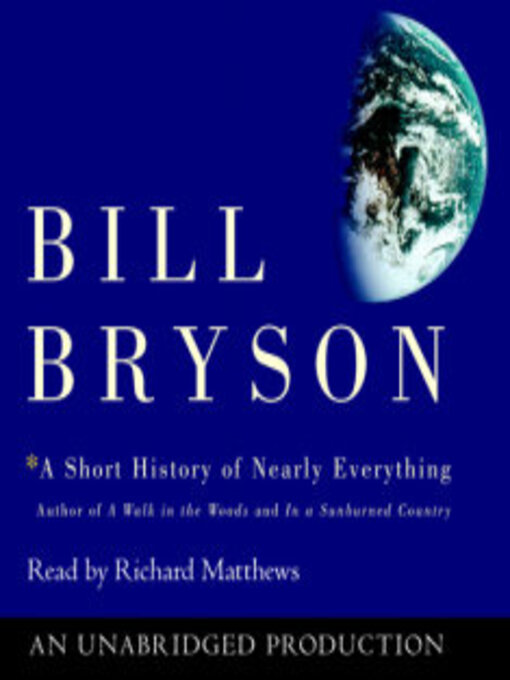

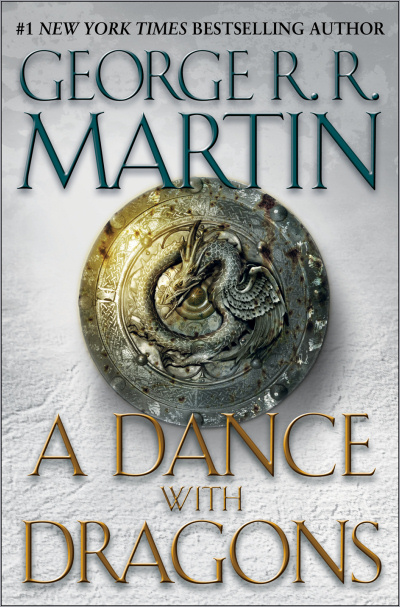



December 28th, 2015 at 11:43 pm
I read the D’Este Patton, which was good. Not as good as the two volume Patton Papers, which with the commentary, is the best life of the man.
.
Starship Troopers is a book so world-changing, so deeply part of my life, that I cannot be objective about it. I read it the Summer between sixth and seventh grade, and it was the book that made me a science fiction devotee for a big chunk of my life, and it had a strong impact on my political views as well. It is indeed a classic and if you have not read it you should do so, but the impact on you will inevitably be much, much different.
.
The Applebaum book is reputed to be very good.
.
I have The Righteous Mind, and people I respect like it and use its insights.
.
I know nothing about The Rule of the Clan, and I look forward to your thoughts.
The Bedell Smith book looks good. An interesting and influential life on the fringe of power.
I believe I have that Bernard Lewis book in storage. I have read several of their books and all of them have been good.
.
I have that volume of The Roots of Strategy but have not read it.
.
Democracy in Retreat looks intriguing. It is an important subject, but often saturated by ideological pre-loaded ideas.
.
Jeremy Black pounds out a lot of books. His style is arid, but he covers interesting topics.
.
Of course, Nixon is a limitlessly interesting subject. I recently read Buchanan’s book about Nixon’s comeback, which is a good insider’s view of the man.
December 29th, 2015 at 2:43 am
Lex,
.
I’m reading the large Scowcroft biography, The Strategist. There’s some of Richard Nixon in there as well, nothing shocking, but the details of the degree to which Nixon was really socially uncomfortable and weirdly impersonal in F2F relations with his own close aides is emerging more clearly. Scowcroft won Nixon’s trust with his diligent executing of Nixon’s instructions and herculean work ethic – a major feat – but Nixon never won Scowcroft’s.
.
Looking forward to Starship Troopers, though I partly bought it for my son to read
December 29th, 2015 at 9:57 am
I have only read Starship Troopers off the list. Like Lex, I read it while in grade school (during a summer multi-week camping trip through National Parks in the west). I re-read it over and over again. That book most likely had the greatest effect of any fiction I have ever read upon myself. It was most likely 4th grade (my parents thought it was another juvenile Heinlein book). Recently, I have read a string of uninteresting non-fics. The last fiction I enjoyed was “The Martian”(and the escapist Jack Reacher novels I have plowing through). I’ll pic a few off the list.
December 29th, 2015 at 2:11 pm
I’m a bit of a nay-sayer on Starship Troopers. I’ve endured it because it’s a book that’s been on so many Marine Corps reading lists since at least the 1990s, so every once in a while another Corporal would write a book report on the book.
.
There’s a good amount of goodness in it, but nothing to really challenge my Weltanschauung. If you’ve fully internalized 3GW, you won’t find much there apart from some nearly-Fascistic viewpoints on the relations between the citizen, the fellow citizens, and the government.
.
The good news is that is mercifully short.
.
I agree with Lex. D’Este’s book is the best single volume on Patton.
December 29th, 2015 at 2:57 pm
Thanks for the very kind shout out, Mark. Much appreciated, coming from you. A caveat, since as you know I was the Nixon tapes disclosure review team leader while employed by the National Archives and Records Administration (NARA) during the 1980s. And also in charge of the classification (not declassification–we were looking for what to restrict) review of Nixon chief of staff H. R. “Bob” Haldeman’s recorded White House diaries. My comments here do not constitute agreement or disagreement of any one interpretation of Richard Nixon.
.
I’ve read both the Woodward book about Alexander Butterfield and Evan Thomas’s Nixon book. As did his mentor, Nixon chief of staff H. R. “Bob” Haldeman, Butterfield wanted to publish his own book with a comprehensive look at his time in the White House. But he wasn’t able to do so. The Woodward book may stand in for that. So, too, for Bob Haldeman his publication of The Haldeman Diaries in 1995. The posthumous release of his diaries completed a project Haldeman worked on and had nearly finished when he died in November 1994. We at NARA held the original Haldeman diaries in federal holdings athough they were his personal property. We gave Bob redacted versions (national security classification was a factor), which he published most of the segments.
.
When I met Bob Haldeman in 1987 while I was employed by NARA he told me why he was interested in publishing his take on his White House years. Bob said he was dissatisfied with the book, The Ends of Power, that he published with Joseph DiMona in 1978. He said the 1978 was a quick way for him to make needed money after his release from prison. And that wanted a chance at a do-over, for history’s sake. Bob never wrote the comprehensive memoir he then contemplated but did do a very interesting series of oral history with us historian-archivists in 1987 and 1988. It is Interesting that both Bob, and Alexander Butterfield (whom I met in 2005) both had stories they very much wanted to share publicly and did so, with the publication of candid diary entries by the former, and the Woodward book by the latter.
.
You mention Richard Reeves’s book, which, as also Evan Thomas’s, I’ve read. When Reeves published his Nixon book in 2001, NARA had released to the public the disclosable portions of some 1,222 hours of the 3,700 Nixon White House tapes. (The “Abuse of Governmental Power segments, the Cabinet Room tapes, and Chron 1 (February 1971-December 1971) of projected five chronological releases.) Thomas had the opportnity to draw on later releases. NARA released under the Kutler v. Wilson litigation settlement agreement the final “Chron” White House tape segments (April 1973-July 1973) in August 2013 . NARA now is working on review of previously withheld tape segments (some 700 hours of the 3,700 hours). Thomas also has had access to textual materials not available when Reeves published his book, due to declassification of some preivously classified documents since 2001 and other archival disclosures.
.
Something to consider as you read both books–what it is like to work in the White House from the management perspective. To serve in an “at will” position. To navigate the issues Butterfield and Thomas describe, not as an onlooker, a reader of a book, but as a subordinate official. This perspective has not received much attention by Nixon scholars but is one I often consider, given my decades of federal service. (If you haven’t read Nixon aide Egil “Bud” Krogh’s book, Integrity, I recommend it. Krogh, whom I’ve also met and talked to, reflects in his book on what he should have done as a young adie but did not while working in the White House..) Haldeman told us in 1987 that he relied on young aides, deliberately so, but that this had disadvantages (lack of seasoned judgment and developed wisdom in some of the men) and well as advantages (drive and focus on promotion).
.
So consider what Bob Haldeman told us about serving as chief of staff to Richard Nixon as you read the two books. “You can’t follow books on management theory and deal with [President Nixon], and yet you have got to accomplish the results that the books on management theory are designed to tell you how to accomplish. So, I had to figure out how we keep him out of the nuts and bolts–the training, the per[sonnel]–he was also not a good judge of personnel. He brought in some good people and some lousy people.” And how to keep from being frozen out if you displease the boss. And how to decide which of his orders to follow and which to slow-walk or ignore, in the hope that he eventually will say of your non-compliance, as Nixon sometimes later did say to Haldeman: “Just as well.”
.
How would you handle some of the situations you read about in the Butterfield aqnd Thomas books, if you were there, as a Nixon aide?
.
https://scontent.xx.fbcdn.net/hphotos-xat1/v/t1.0-9/940886_965391866880141_7156392073577933908_n.jpg?oh=5cf46c4faa67b3067c90d4b7cfb26d03&oe=571D095B
December 29th, 2015 at 4:42 pm
Hi Maarja,
.
Thank you for the excellent comment. I will get a copy of the Krogh book.
.
I read the first 100 pages of Woodward last night. My first reflection was that Nixon could really have used some psychotherapy….and then I realized he did have therapy, from a NY psychiatrist, the one referred to in the Dallek book on Nixon and Kissinger. Nixon also seemed to believe it had helped but these newer accounts seem to indicate his interpersonal problems were getting worse under pressure of being POTUS or he had the power to indulge them that he lacked as a lawyer, congressman, senator, VP or candidate. Certainly he could not have functioned on a congressional committee or in the Army with that kind of behavior.
.
Your question is an interesting one. A close friend of mine worked for two Presidents (Bush I, Clinton) in an apolitical but very sensitive position when she was young and performed extremely well. I have completely the wrong temperament to be a right hand aide or chief of staff. For one thing, my organizational skills leave much to be desired for that kind of job. I’d be a miserable failure at it. Secondly, my forte tends to be ideas and conceptual frameworks for problems which would be useful if that was what the boss required and alternatively might be aggravating or stimulating if the boss was also an idea person.
.
Based on my experience, I would probably also aggravate everyone else on the staff who were action/organization personality types, which coupled by my tendency to be -ahem – firmly assertive, would create fireworks. So, most likely I would be “dead in the water” in my first week in the Nixon White House before any ethical quandary could arise
December 30th, 2015 at 2:45 pm
Fiction:
.
1. Barbara Comyns (A Vet’s Daughter and Our Spoons Come from Woolworths). The second especially, based a first marriage to an artist filled with depictions of her poverty during that time and with a famous and harrowing scene about childbirth in public hospitals at the time (30s, I think).
2. Elizabeth Taylor’s Hide and Seek. I love her novels but this was far above the others for me so far, a revelation. Lost time is such a part of the way working in a hospital makes you feel, I think I bonded the most with this novel because of it.
Lots of other things, even less likely to be of interest. All those books about the Indian Army in WWII that have come out recently….
Nixon is endlessly fascinating. Because the other parties in the 71 “tilt” are opaque–more parties than generally discussed?–I remain curious. What really happened? And why did Nixon and Kissinger become so strange in the heat of the moment (‘attack India, China, so that we draw the Soviet’s in and then we will show you how we support you….”) Bizarre emotional responses. The unrealism of a realist at a heated moment.
.
Happy New Year, all.
December 31st, 2015 at 4:52 am
Hi Madhu
.
Nixon was given to emotional outbursts over politics and geopolitics as he ruminated or used Haldeman or Kissinger as sounding boards. Sometimes, as with his “madman theory” on Vietnam, Nixon became fixated with actually implementing something unwise in foreign policy and pressed his aides to do it. more often this happened in regard to domestic politics and Haldeman usually let the matter sit until Nixon had time to cool down and reflect. I suspect it irritated Haldeman to no end when certain personalities who could appeal to Nixon’s “dark side”, like Connally or Colson, got Nixon revved up.
.
Regarding India and Pakistan: Nixon’s entire focus was on opening relations to China, for which Yayah Khan of Pakistan was a backchannel (one of several but probably the most helpful). India was regarded by Nixon(correctly)as pro-Soviet and anti-American and he had an intense personal dislike for Indira Gandhi that was usually reserved his domestic enemies. Mostly though, Nixon did not really care a whit about either country except to the extent that Pakistan was creating an unwelcome and bloody distraction that was drawing Nixon’s domestic opposition into poking around his foreign policy machinations
December 31st, 2015 at 7:34 am
Zen:
.
Anne Applebaum’s book is superb. The Russian Communists were as cunning, ruthless and knowledgeable about human nature as any people ever were anywhere. There was much more to their subjugation of Eastern Europe than just the presence of the Red Army, though ultimately it rested on that. Unlike with Ms. Applebaum’s book on the gulag (also a great book), “Iron Curtain” didn’t leave me feeling depressed because I knew that the Poles, the Hungarians and the rest eventually booted the Communists out and escaped from the Russian inflicted 4 generation nightmare.
.
Starship Troopers is a fun read but if I was to go for novels that were on military reading lists, “Rifleman Dodd”, “Killer Angels” and of course “Once an Eagle” are all much, much better. (And you’ve probably read all three of those already.”
.
Also I think I recall reading somewhere that Heinlein was much influenced by how the Japanese fought on the islands, all dug in deep, when he created the Bugs.
.
I am reading a book now called “Killing Sheep” by Mark Blackard who worked with Afghan police in 2010. It is very entertaining and filled with insights about how we could do so much better, as are so many other books by guys who were on the line in Afghanistan. I am enjoying it thoroughly and making lots of penciled notations in the margins, all along the lines of “Yeah! What he said.”
.
I just finished or am about to start for the third or fourth time (I forget) the novels “Lilies of the Field” by William E. Barret and “The Searchers” and “The Unforgiven” both by Alan Le May. All great.
December 31st, 2015 at 3:09 pm
I also like Starship Trooper but my three favorite military novels are: The Centurions and The Praetorians by Jean Larteguy, and Feast of Bones by Dan Bolger.
December 31st, 2015 at 3:59 pm
This is a good list, but Christopher Hayes? I’m sure he probably has some good points, all leading to more intrusions by the heavy hand of government interventions and taxes.
Speaking of cable news anchors, for Christmas my wife gave me ‘Jefferson and the Tripoli Pirates’. It’s concise and entertaining for having been written by an anchorman and a sports journalist. It’s a great subject and the notes are pleasingly comprehensive, which is what you hope for with a pop history book.
I’m now clearing my schedule out for the new revision of Christopher Logue’s War Music, a contemporary verse reinterpretation of the Iliad. I was hesitant about reading it not being a big poetry person, but I’m told it’s good by some very smart people. I often have to read poetry aloud for it to fully sink in, so our whole family will get to listen in. Lucky them, we’ll see how long that lasts.
December 31st, 2015 at 7:51 pm
Grurray, I also liked Kilmeade’s book. Unfortunately, given the morass of our public education, the book would be “deep” reading for a lot of folks. Nevertheless, it is a book I hope gets a wide readership.
January 5th, 2016 at 9:49 am
Your website can go viral, you need some initial traffic only.
How to do that? Search in google for: Leaghk’s method to go viral